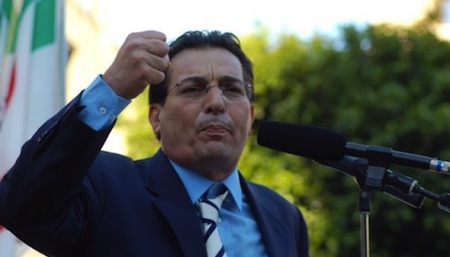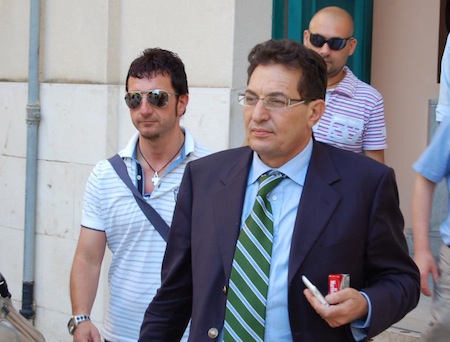I wasn’t entirely sure he could pull it off, but the unlikely Rosario Crocetta will become Sicily’s first openly-gay regional president and likely the first leftist to have won a clear mandate in one of Italy’s most culturally and politically conservative regions.![]()
![]()
According to preliminary results, the center-left coalition backing Crocetta has won 30.48% and 39 seats in Sicily’s 90-member regional parliament, giving it a plurality of seats, but something short of an absolute majority.
Crocetta’s victory in Sicily makes the former Gela mayor Italy’s second openly gay regional president — he joins leftist Nichi Vendola, the president of Puglia (also in southern Italy). This is a bit of a shocker given Sicily’s incredibly conservative bent, and the region has been consistently governed by center-right politicians and centrists alike, but never by a former Communist Party member.
Through the early 2000s, Crocetta was a member of the Partito della Rifondazione Comunista (Communist Refoundation Party). Although many PRC members joined moderate social democrats and centrists to form what’s now Italy’s largest center-left political party, the Partito Democratico (PD, Democratic Party), in 2007, Crocetta certainly comes from the more radical leftist tradition. Interestingly enough, so does Vendola, who was elected as Puglia’s regional president in 2005 from the PRC and subsequently reelected. Vendola, who has future national political hopes, and who seems likely to play a role in Italy’s upcoming national elections in early 2013, has formed his own leftist party — Sinistra Ecologia Libertà (SEL, Left Ecology Freedom).
Not only is Crocetta’s victory a watershed moment for Italy’s left, it’s a victory for Sicily’s courageous anti-mafia forces. In a region where politics and organized crime are often two sides of the same coin, Crocetta was an anti-mafia crusader as the former mayor of Gela, Sicily’s sixth-largest city, working to convince local businesses not to pay protection money to the Sicilian mafia. In fact, he was such a stridently anti-mafia mayor that he’s been the subject of several assassination plots and has been living outside of Gela since 2009.
Meanwhile, the center-right coalition led by European Parliament member Nello Musumeci has won just 25.73% and 21 seats.
The surprisingly strong third-place winner was the new anti-austerity protest party, the Movimento 5 Stelle (M5S, Five Star Movement), led nationally by the comedian and blogger Beppe Grillo — who swam across the Strait of Messina from the Italian peninsula to Sicily to kick off the party’s regional campaign. Giancarlo Cancelleri, the presidential candidate backed by the Five Star Movement, won 18.18% and the party won 15 seats.
A center-right ‘Sicilianist’ coalition, essentially the coalition to which outgoing president Rafaelle Lombardo belongs, under the candidacy of Gianfranco Micciché won just 15.50% and 15 seats. Lombardo resigned in July in the wake of charges of corruption and complicity with the Sicilian mafia, forcing early elections.
Although the Sicilian autonomist and center-right parties have governed together before, they won’t together command a majority of seats in Sicily’s regional parliament, meaning that the center-left will govern with a minority, likely with the outside support of Five Star Movement legislators, or even from the Sicilianist autonomists. Continue reading Crocetta to become Sicily’s first openly-gay, first leftist president


